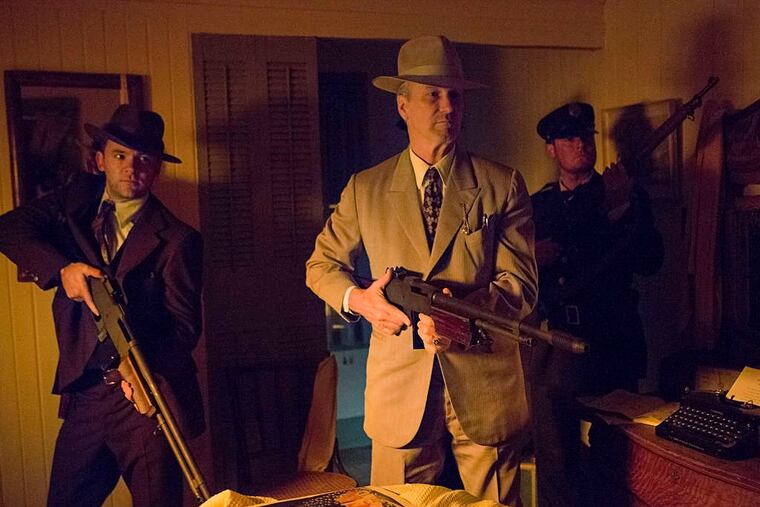'Bonnie & Clyde' goes on a 2-night, 3-network spree
Can a simulcast miniseries with a high body count make more cable history?

* BONNIE & CLYDE. 9 p.m. Sunday and Monday, A&E/Lifetime/History.
IT'S TIME to give millennials a break.
Technology may have tagged them as Generation Selfie and "reality" television inspired a few too many to try to keep up with the Kardashians, but they didn't invent the longing for fame for fame's sake.
Just imagine what Bonnie Parker could have done with a webcam and a Pinterest account.
What she did, instead, with partner Clyde Barrow in the days before broadband is covered - often in blood - in the two-night miniseries "Bonnie & Clyde," which begins Sunday on A&E, Lifetime and the History Channel in an unusual simulcast likely inspired by the record ratings for History's "Hatfields & McCoys," another period piece with a high body count.
Tabloid writers (and, yes, I'm one) have always loved Parker and Barrow, played here by Holliday Grainger ("The Borgias") and Emile Hirsch ("Into the Wild"). But the love's sometimes been expressed to the point of silliness, applying the nicknames to any halfway photogenic criminal couple, whatever their misdeeds.
"Bonnie & Clyde" raises the bar.
"Maybe if I hadn't found Bonnie Parker, all I'd be known for is stealing chickens," suggests Clyde in Sunday's installment, a wistful, blame-the-girl sort of statement that "Bonnie & Clyde" doesn't do much to counter.
Intentionally or not, Bonnie functioned as the Barrow Gang's de facto publicist after some photographs of her and the others, and poems she'd written, ended up in the newspapers (though I can't vouch for the authenticity of PJ Lane, the Dallas reporter, played by Elizabeth Reaser, who furthers her own career by helping to make the gang famous).
Holly Hunter plays Bonnie's mother and William Hurt the Texas Ranger who tracked the gang, but neither Oscar winner has anything interesting enough to do to justify what Lifetime's calling a reunion of the "Broadcast News" stars.
"Bonnie & Clyde" does make some points about our screwy celebrity culture, as alive in its own way during the Great Depression as it is today. But it's probably not a good sign that by Monday's installment I was nearly as eager to see the Barrow Gang's spree end as Hurt's character was, even knowing it was bound to be far from pretty.
How deadly Bonnie actually was personally may be in some dispute, historically, but the script has Grainger playing her as an attractive, utterly ruthless sociopath, leaving Hirsch's Clyde - who seems to have killed an awful lot of people - looking maybe a little less terrible than he was.
But, hey, I didn't know either of them. And after watching four increasingly dispiriting hours of "Bonnie & Clyde," I'm pretty sure I wouldn't want to.